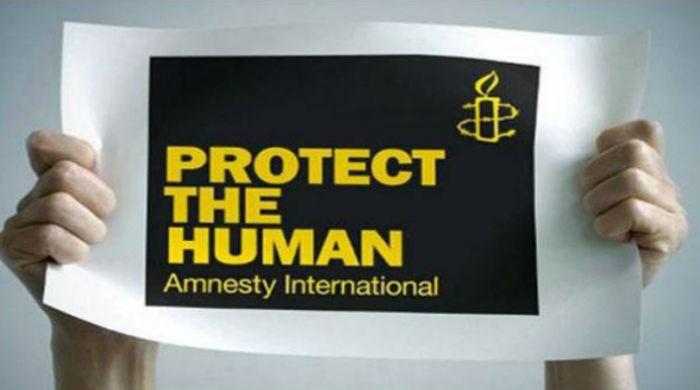EU-anti-terror-laws-target-Muslims-warns-Amnesty-International..jpg" />
Draconian’ EU anti-terror laws target Muslims, warns Amnesty International.
Brussels, 19 Rabiul Akhir 148/18 January 2017 (MINA) – Sweeping new counter-terrorism laws are driving Europe into a deep and dangerous state of permanent securitization, the human rights group Amnesty International said in a report on counter-terrorism measures across 14 EU member states published Tuesday.
“Discriminatory measures have had a disproportionate and profoundly negative impact on Muslims, foreign nationals or people perceived to be Muslim or foreign. Discriminatory action by the state and its agents is increasingly seen as “acceptable” in the national security context,” laments the report.
Also Read: Activist Unfurls Palestinian Flag During German Parliament Session, Protesting Gaza Policy
Amnesty released its report ahead of the imminent adoption of the EU legislation on Combating Terrorism, the latest attempt to standardize counter-terrorism laws and “which threatens to have a severely damaging impact on human rights.”
The report notes that migrants and refugees, human rights defenders, activists and minority groups have been particularly targeted by new powers, with profiling, often based on stereotyping, leading to the outright misuse of laws that define terrorism very loosely.
Many EU member states are increasingly attempting to draw links between the refugee crisis and the threat of terrorism “In the wake of a series of appalling attacks – from Paris to Berlin – governments have rushed through a raft of disproportionate and discriminatory laws,” said John Dalhuisen, Amnesty International’s Director for Europe.
“EU governments are using counter-terrorism measures to consolidate draconian powers, target groups in discriminatory ways and strip away human rights under the guise of defending them. We are in danger of creating societies in which liberty becomes the exception and fear the rule” he warned.
Also Read: Hundreds Rally in Stockholm to Condemn Israeli Attacks and Ceasefire Violations in Gaza
According to Kuna, in several EU countries, counter-terrorism measures have been proposed or enacted that have eroded the rule of law, enhanced executive powers, peeled away judicial controls, restricted freedom of expression and exposed everyone to unchecked government surveillance.
The impact on foreigners and ethnic and religious minorities has been particularly profound, it says.
Surveillanc states
Also Read: Mass Protests Erupt in Bologna Against Israeli Teams Ahead of EuroLeague Match
Many EU countries have joined the ranks of “surveillance states” as new laws allowing indiscriminate mass surveillance have been passed giving intrusive powers to security and intelligence services.
Mass surveillance powers have been granted or otherwise expanded in the UK, France, Germany, Poland, Hungary, Austria, Belgium, and the Netherlands, among others, allowing the mass interception of and possible access to the data of millions of people.
In 2015 French courts handed down 385 sentences for “apology of terrorism”, a third of which were against minors. Definitions of what constitutes “apology” are extremely broad.
“Whilst the threat posed by terrorism is very real and must always be responded to resolutely, the role of governments should be to provide security for people to enjoy their rights rather than restricting people’s rights in the name security,” said John Dalhuisen.
Also Read: Finland’s Largest Retailer Halts Israeli Product Sales
The countries profiled in the report are Austria, Belgium, Bulgaria, Denmark, France, Germany, Hungary, Ireland, Luxembourg, Netherlands, Poland, Slovakia, Spain, and the United Kingdom.
Not every EU member state is mentioned in this report, but almost all have promulgated bills, adopted laws and/or carried out security operations similar to many of those described, said Amnesty. (T/RS05/RS01)
Mi’raj Islamic News Agency (MINA)
Also Read: 1,000th Western Military Supply Plane Lands in Israel Since Gaza War
































 Mina Indonesia
Mina Indonesia Mina Arabic
Mina Arabic